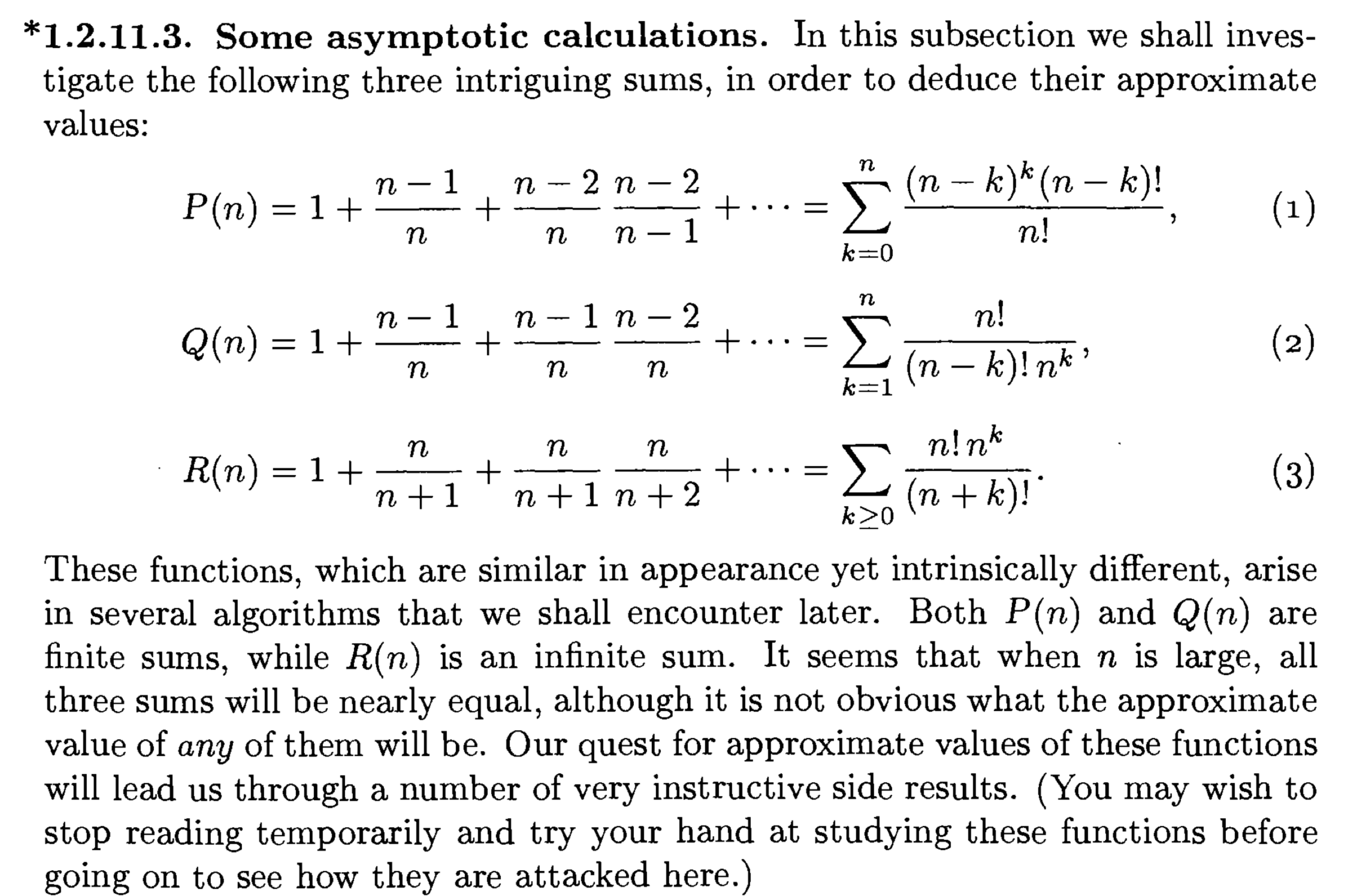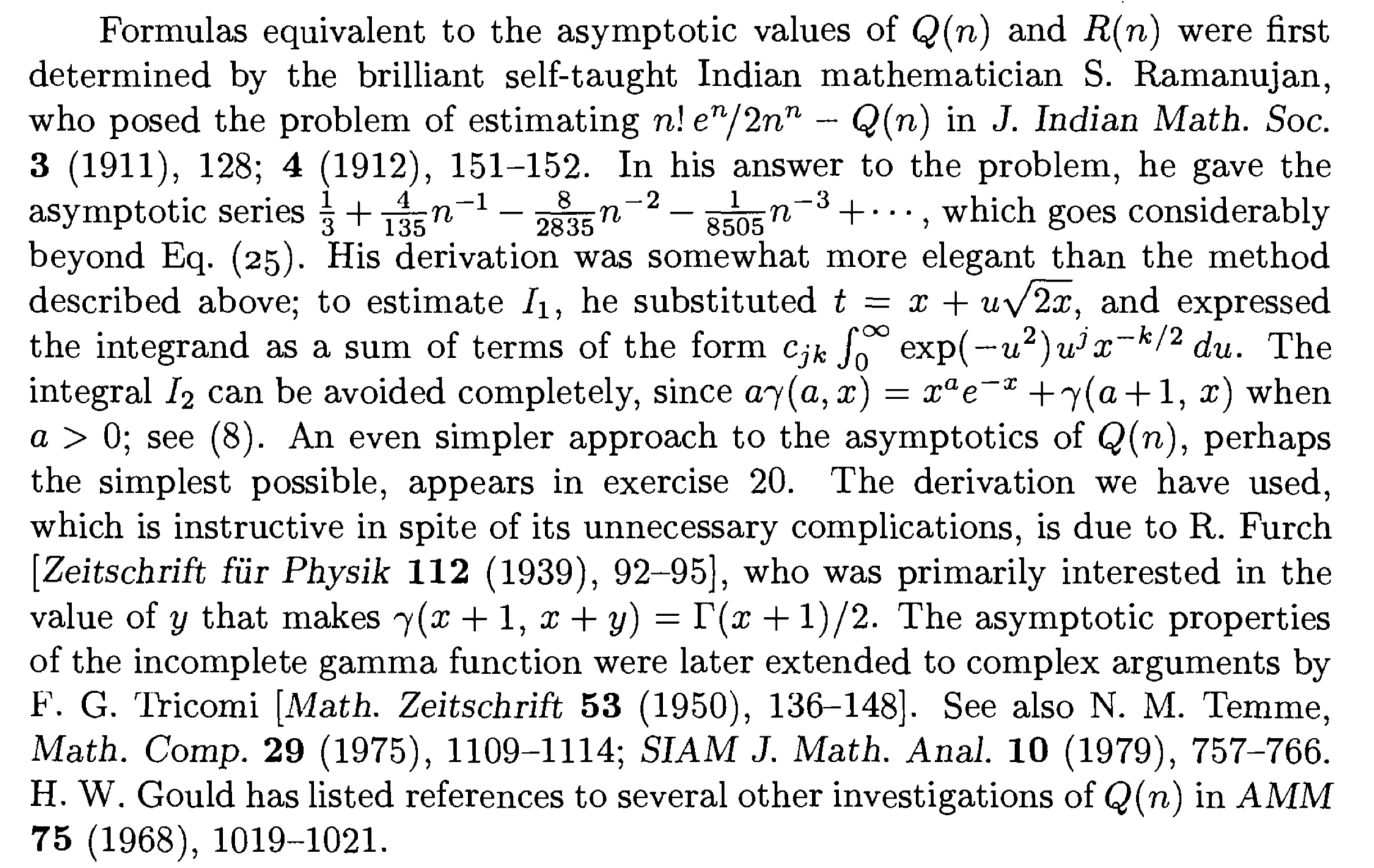An expansion from Ramanujan related to birthday problem
A crystal clear derivation using only elementary calculus is given by Donald Knuth on page 116-121 of The Art of Computer Programming (volume 1).
I reproduce the first and the last paragraphs of Knuth's exposition:


We have $$Q(n)=\sum_{k=0}^{n-1} (1-1/n)(1-2/n)\ldots(1-k/n).$$ Write $1-x/n=e^{-x/n-x^2/(2n^2)-\ldots}$, then $$Q(n)=\sum_{k=0}^{n-1} \exp\left(-\frac{k(k+1)}{2n}-\frac{k(k+1)(2k+1)}{12n^2}-\ldots\right).$$ If $k\geqslant n^{1/2+0.00001}$, the corresponding summands are super-polynomially small and do not rely on the asymptotics. For $k<n^{1/2+0.00001}$ , the first few summands in the expansion define it with good accuracy ($n$ to any prescribed negative power) and we get a standard problem of the asymptotics of $\sum_k g(k)$ for $g(k)=\exp(-\frac{k(k+1)}{2n}-\frac{k(k+1)(2k+1)}{12n^2})$, say. It is obtained by Euler–Maclaurin. The main term comes from the approximation of $\sum_k \exp(-k^2/(2n))$ by $\int_0^\infty \exp(-x^2/(2n))dx=\sqrt{\pi n/2}$.